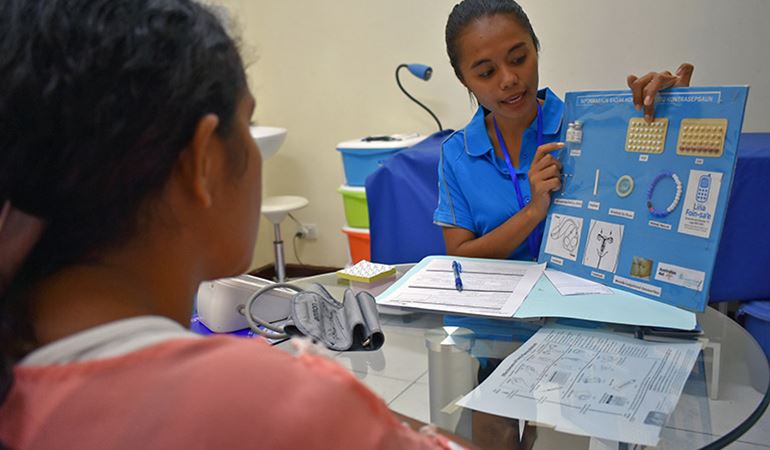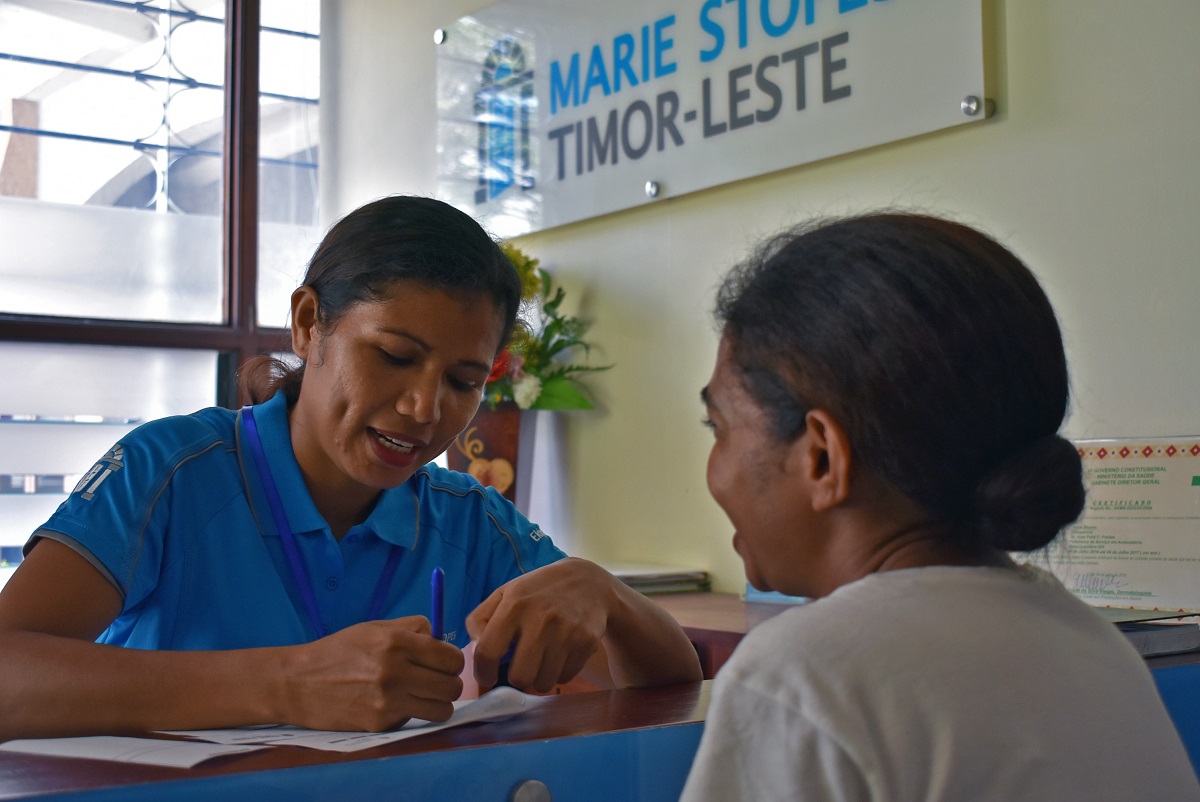Combined oral contraceptive pill (COC)
A daily tablet to prevent pregnancy

A short-acting family planning method
The combined oral contraceptive pill (COC) is a tablet that contains two hormones, progestogen and estrogen, and is taken daily to prevent pregnancy.
The hormones in the pill work by preventing the ovaries from releasing an egg each month (ovulation). It also thickens cervical mucus so that it is harder for a sperm to reach the womb.
Effectiveness
92%. If one hundred women used the pill for a year, then 92 of those women would not fall pregnant during that period.
Some women forget to take the pill every day, which can increase the risk of unplanned pregnancy.
Availability
At the Family Health Clinic in Dili and through outreach teams in the municipalities where we work.
Pricing
Free through outreach, and at a small cost at the Family Health Clinic.
Call the Family Health Clinic on 3322 841 for more information on price.
Combined oral contraceptive pill advantages
Combined oral contraceptive pill advantages
- As commonly used, the pill is 92% effective at preventing pregnancy.
- Can sometimes be used to treat period pain, heavy periods, premenstrual syndrome, acne and endometriosis.
- Does not interrupt sex.


Things to consider
When deciding if the pill is right for you, here are a few quick facts you should consider:
- Has to be taken every day.
- Not suitable for women with high blood pressure.
- Not suitable for women over 35 who smoke.
- May not be suitable for women who have migraines.
- Missing pills, taking some other medications, vomiting, or severe diarrhoea can make it less effective.
- Side effects include mood swings, breast tenderness and headaches.
- There is a small risk of blood clots.
- Does not protect against sexually transmitted infections.
What to do if you miss a pill
If you miss a pill or pills, or you start a pack late, this can make the pill less effective at preventing pregnancy.
Missing one pill anywhere in your pack or starting the new pack one day late isn’t a problem, as you will still be protected against pregnancy.
However, missing two or more pills, or starting the pack two or more days late (more than 48 hours late) may affect your contraceptive cover. In particular, if you make the seven-day pill-free break longer by forgetting two or more pills, your ovaries might release an egg and there is a risk of getting pregnant.
If you miss a pill and are not sure what to do, continue to take your pill, use another method of contraception and seek advice as soon as possible.








